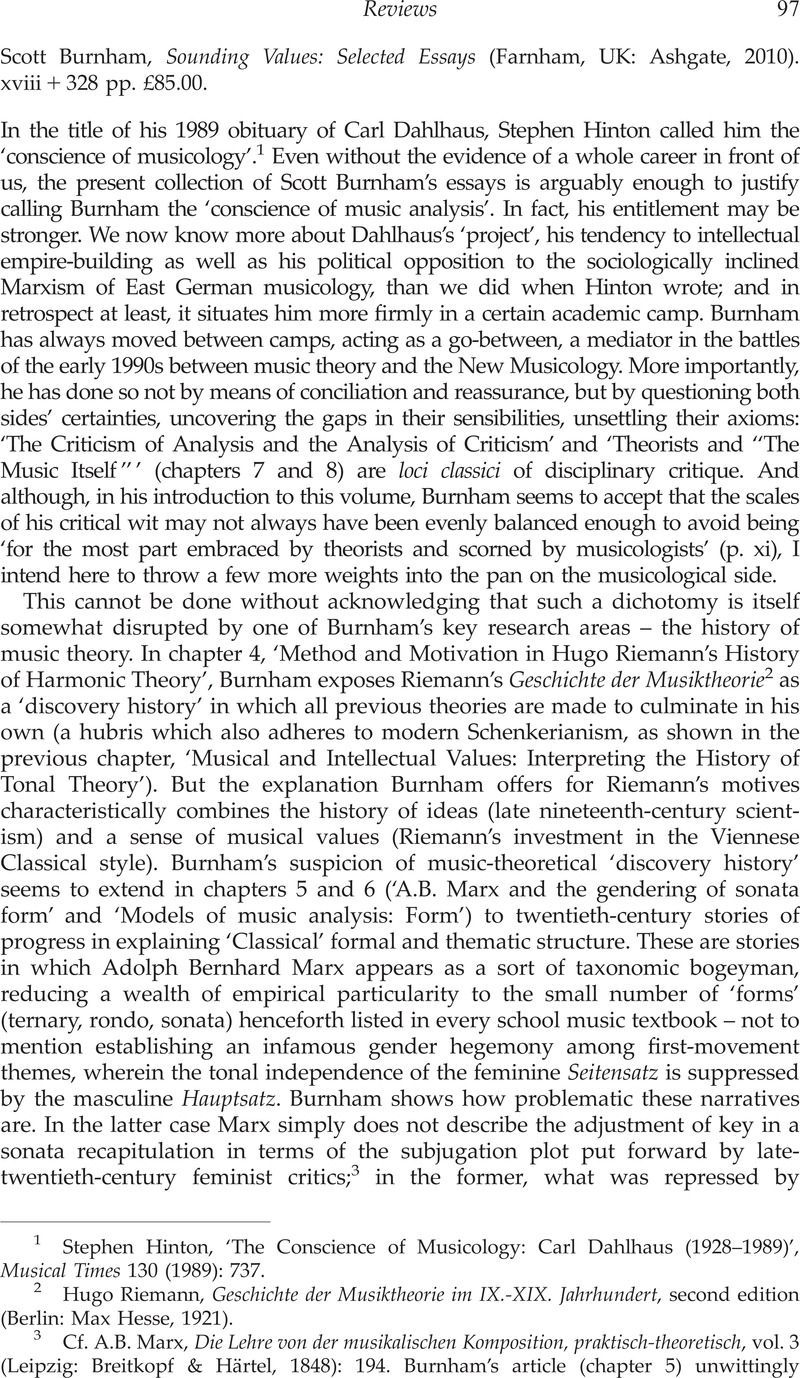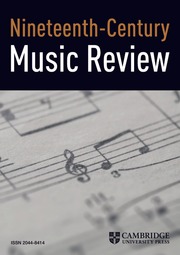No CrossRef data available.
Article contents
Scott Burnham, Sounding Values: Selected Essays (Farnham, UK: Ashgate, 2010). xviii+328 pp. £85.00.
Published online by Cambridge University Press: 24 May 2012
Abstract

- Type
- Book Reviews
- Information
- Nineteenth-Century Music Review , Volume 9 , Issue 1: Theoretical and Critical Contexts in Nineteenth-Century Performance Practice , June 2012 , pp. 97 - 101
- Copyright
- Copyright © Cambridge University Press 2012
References
1 Stephen Hinton, ‘The Conscience of Musicology: Carl Dahlhaus (1928–1989)’, Musical Times 130 (1989)Google Scholar: 737.
2 Hugo Riemann, Geschichte der Musiktheorie im IX.-XIX. Jahrhundert, second edition (Berlin: Max Hesse, 1921)Google Scholar.
3 Cf. A.B. Marx, Die Lehre von der musikalischen Komposition, praktisch-theoretisch, vol. 3 (Leipzig: Breitkopf & Härtel, 1848)Google Scholar: 194. Burnham's article (chapter 5) unwittingly strengthened the feminist interpretation, and created difficulties for his own argument, by mistranslating Marx's description of the Seitensatz, ‘das…zum Gegensatz dienende’ (Die Lehre, p. 272) as ‘by contrast, that which serves [or later on p. 73, is ‘servile’!]’, rather than ‘that which serves as a contrast’ (present volume, p. 57). The error is amply acknowledged in Burnham's introduction (pp. xiii–xiv), although due to the literal-reprographic format of this Ashgate series, it could not be corrected in the text itself.
4 Peter Kivy's judgement on Schumann in The Corded Shell: Reflections on Musical Expression (Princeton: Princeton University Press, 1980)Google Scholar: 4.
5 A.B. Marx, ‘Etwas über die Symphonie und Beethovens Leistung in diesem Fache’, Berliner allgemeine musikalische Zeitung 1 (1824)Google Scholar: 183 (my translation).
6 Lewis Lockwood, Beethoven: The Music and the Life (New York: W. W. Norton, 2003)Google ScholarPubMed: 350.
7 Cf. Nicholas Cook, Beethoven: Symphony No. 9 (Cambridge: Cambridge University Press, 1993)Google Scholar.
8 Scott Burnham, Beethoven Hero (Princeton: Princeton University Press, 1995)Google ScholarPubMed: 35 and 32 respectively.
9 Lawrence Kramer, Why Classical Music Still Matters (Berkeley and Los Angeles: University of California Press, 2007)Google Scholar: 61.
10 James Currie, ‘Music After All’, Journal of the American Musicological Society 62 (2009)Google ScholarPubMed: 175.


